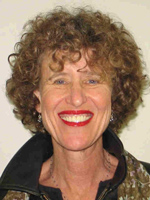Medical anthropologist Carole H. Browner, Ph.D., will speak on “Gender, Health and Reproduction: Transnational Perspectives” at 7:30 p.m. Thursday, Feb. 11, in the Women’s Building Formal Lounge on Washington University in St. Louis’ Danforth Campus. The lecture is preceded by a reception at 7 p.m.

Browner
The lecture is part of the new Initiative on Gender, Sexuality, and Health, which will focus on political, social, cultural and economic inequalities caused by discrimination based on gender, class, caste, race and sexual orientation and how those factors affect access to health care and shape conceptions of well-being for those across the world, including China, India and Thailand.
The initiative is being led by Arts & Sciences faculty Mary Ann Dzuback, Ph.D., director and associate professor of women, gender and sexuality studies and associate professor of education, and Carolyn Sargent, Ph.D., professor of anthropology and of women, gender and sexuality studies.
Browner’s lecture, which is free and open to the public, is co-sponsored by Arts & Sciences; the Women, Gender, and Sexuality Studies program; and the McDonnell International Scholars Academy.
Browner is a professor at the University of California, Los Angeles, Center for Culture and Health in the David Geffen School of Medicine. She also holds appointments in the departments of Anthropology and Women’s Studies at UCLA.
Browner’s research has focused principally on issues surrounding the medicalization of pregnancy and prenatal care — particularly ways in which prenatal genetic information may alter reproductive experience.
With Sargent, Browner is editing the forthcoming collection “Globalization, Reproduction, and the State: New Theoretical and Ethnographic Perspectives” (2010, Duke University Press).
Her book “Neurogenetic Diagnoses: The Power of Hope and the Limits of Today’s Medicine” (2010, Routledge, co-authored with H. Mabel Preloran, Ph.D.) explores the diverse meanings and impacts of genetic diagnoses for patients enduring incurable, ultimately fatal neurodegenerative diseases and for their family caregivers and clinicians.
For more information about the lecture, call (314) 935-5102 or e-mail women@artsci.wustl.edu.